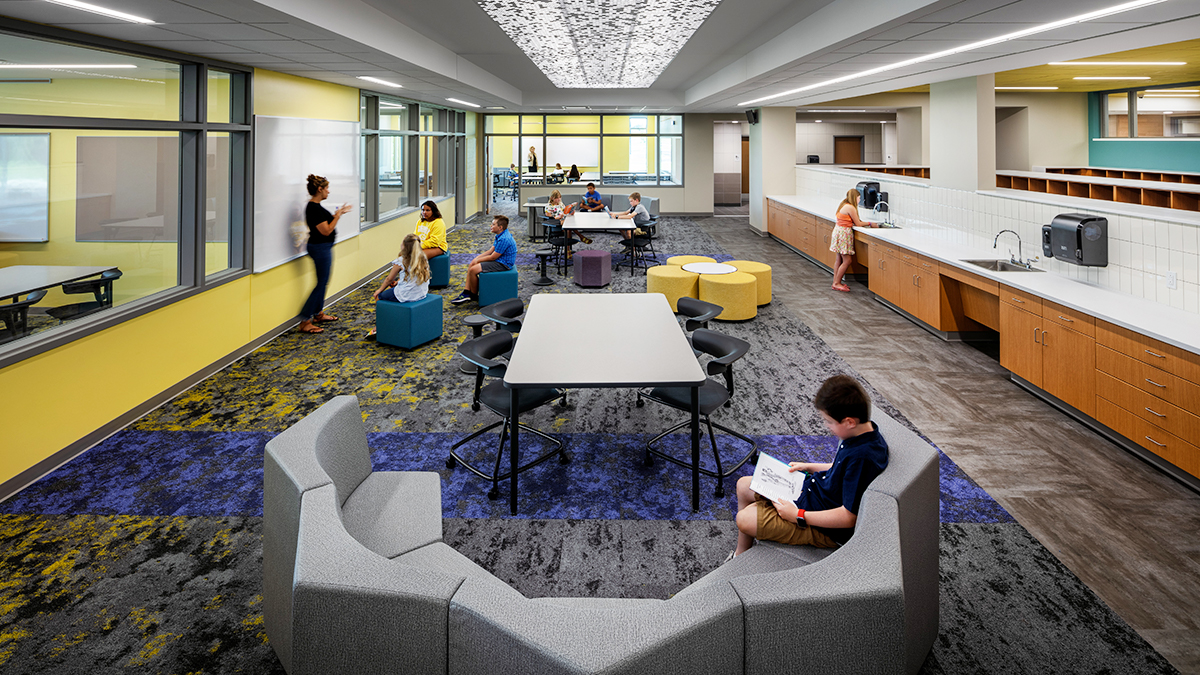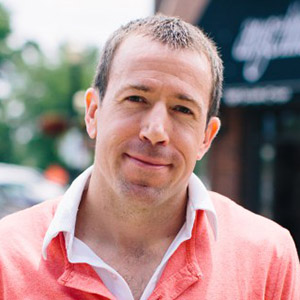- What's New
- Pricing & Purchasing
- Lead Times
- Literature & Samples
- Services & Warranties
- Careers
- Find a Rep
Are “Free Learning Fridays” the Future of K-12 Education?

Last month, our education team traveled to Pittsburgh for EDspaces 2021, the annual education design conference.
Together with my colleagues Marcus Batista, Emily McGinnis and Bryan Ballegeer, we had the opportunity to host a workshop on the paradigm shift in K-12 education. We gathered with about 25 educators, school administrators, designers and architects to explore what they’d like to see from the future of education.
The workshop garnered fantastic discussion with invaluable ideas and insights. We share takeaways in the latest episode of our Furnishing Knowledge education podcast. Following are a few key highlights from our discussion, which has been slightly edited for clarity.
Freedom From the School Bell
To start the workshop, we divided participants into groups and gave them different themes to spark ideas for transforming schools. One group reimagined how to use time throughout the day.
“The idea came from an initial desire to free ourselves from living in a system of bells and having to be in certain parts of the building at certain times of the day,” Marcus recounted. “We wanted students to have more agency over their time.”
Proposals to achieve this goal included polling students on what they want from their teachers, rather than sending teachers to professional development trainings designed with little to no student input.
“The end goal would be to help faculty teach better while supporting their work-life balance,” Marcus concluded.
Another group proposed canceling class on Friday to let students do what they want, where they want, when they want – with an open-ended assignment for learning and accountability. Doing so empowers students to pursue their passions. It also transforms the teacher’s role from the disseminator of rules and knowledge into a coach or mentor.
Balancing Control and Creativity
The concepts of “Free Learning Fridays” and teachers as mentors evolved into a discussion of education control. Many participants tensed up at the idea of giving students more freedom over the learning process. Parents, understandably, want to know what their children are doing in school. Teachers, who are responsible for 20 or so students, want to maintain safety and stability.
But can students learn and achieve more if we turn over some of that control to them?
Emily thinks so. “If you give kids the credit and the wherewithal to do things without so many parameters and rules, they will rise to the challenge,” she said.
Participants also discussed how to reconcile creative learning with state-level standards and traditional grading concepts.
“There are so many ways to rewrite our standards to be more creative and open-ended,” Emily added. “We neglect to let kids figure out what problems they want to solve – or how to learn to accept failure and productively overcome setbacks.”
Creating Moments of Joy
We asked our participants to leave with one question in mind: How can you create more moments of joy for your students?
Whether the solution be repurposing time, giving students more agency or finding space for creativity, making joy integral to the learning experience can take a variety of forms.
Pause and think about it. What would your solution be?
Explore More
Listen to our full conversation detailing scenarios for moving forward with K-12 learning spaces in our latest podcast.
Subscribe
Stay up to date with the latest trends and more.



